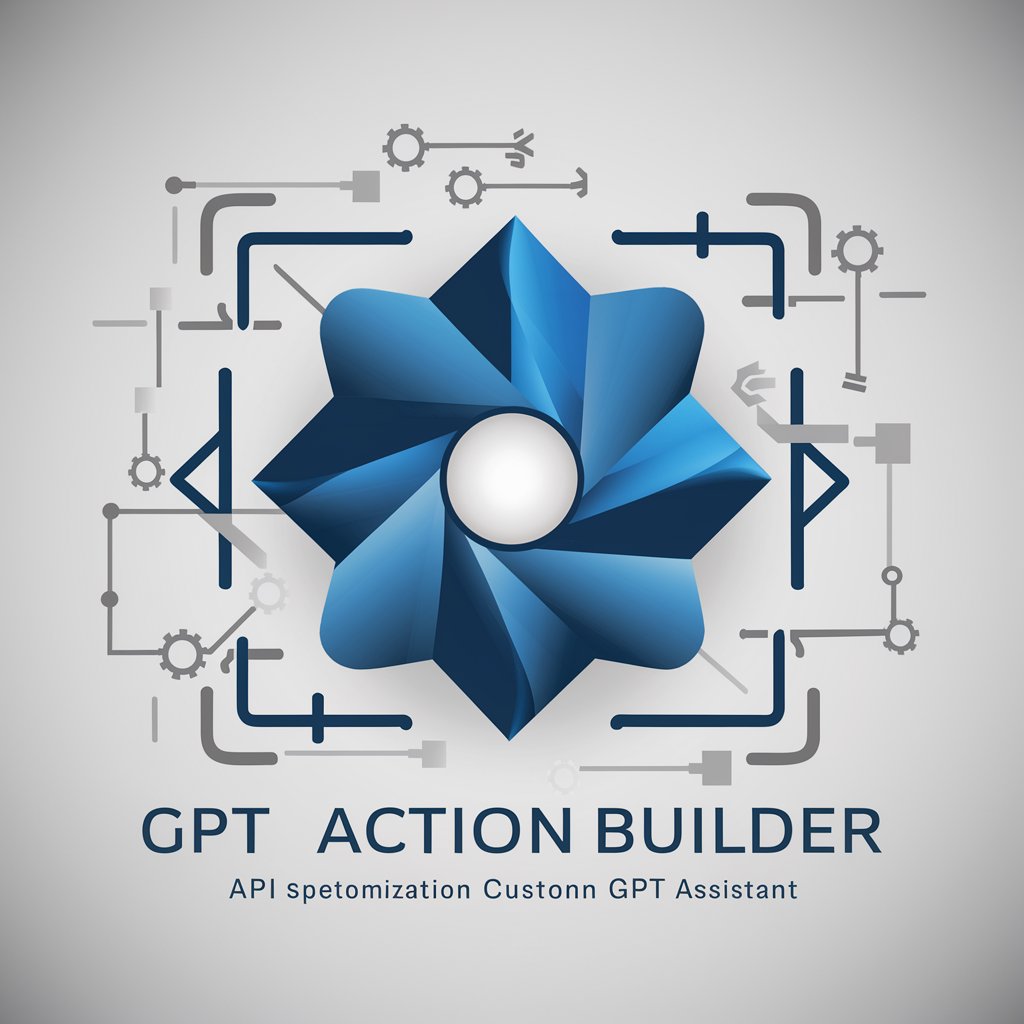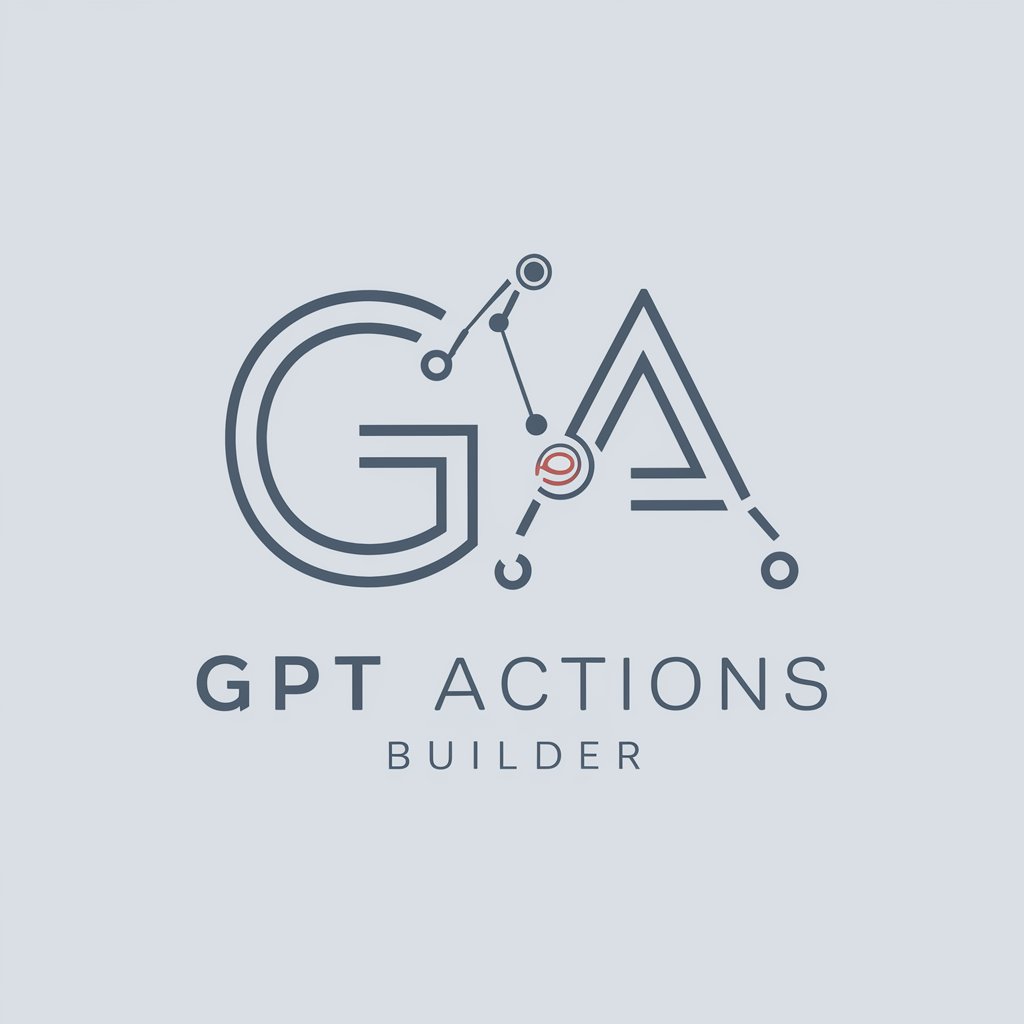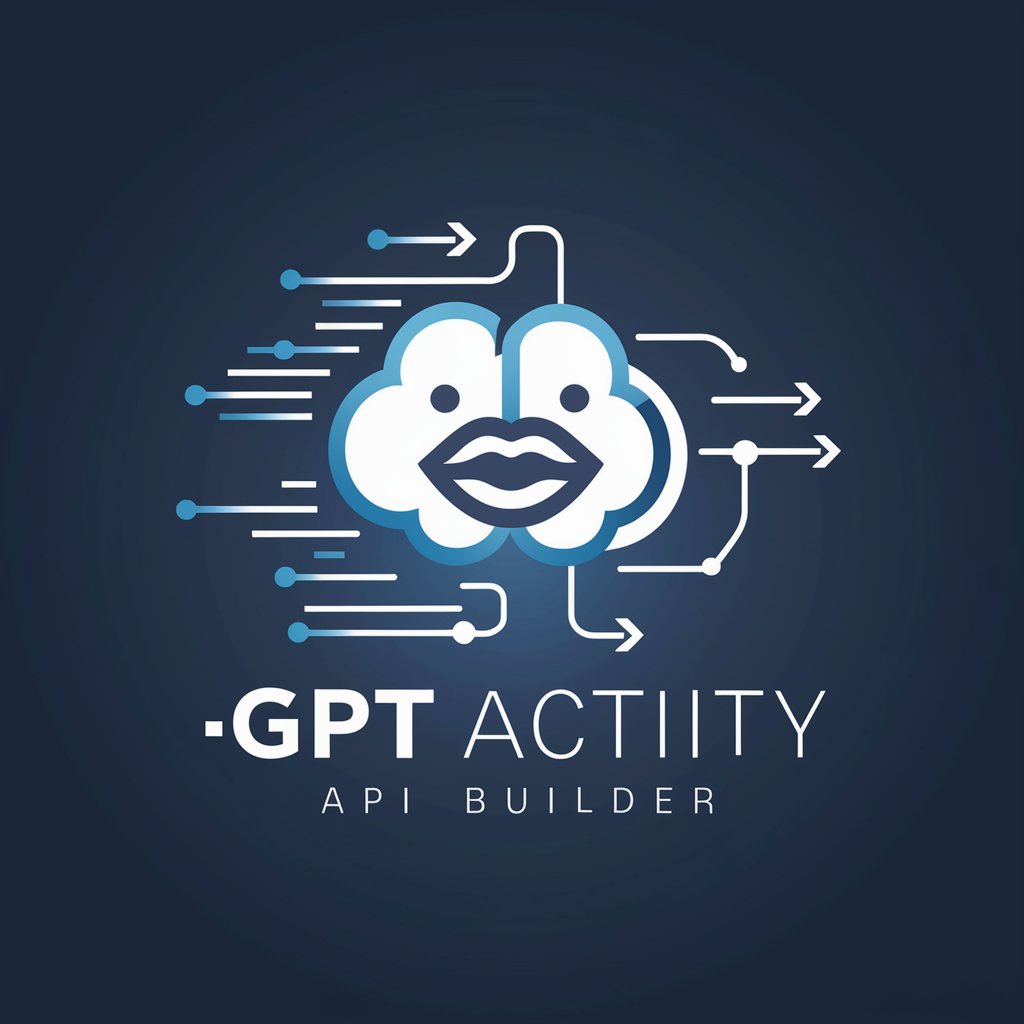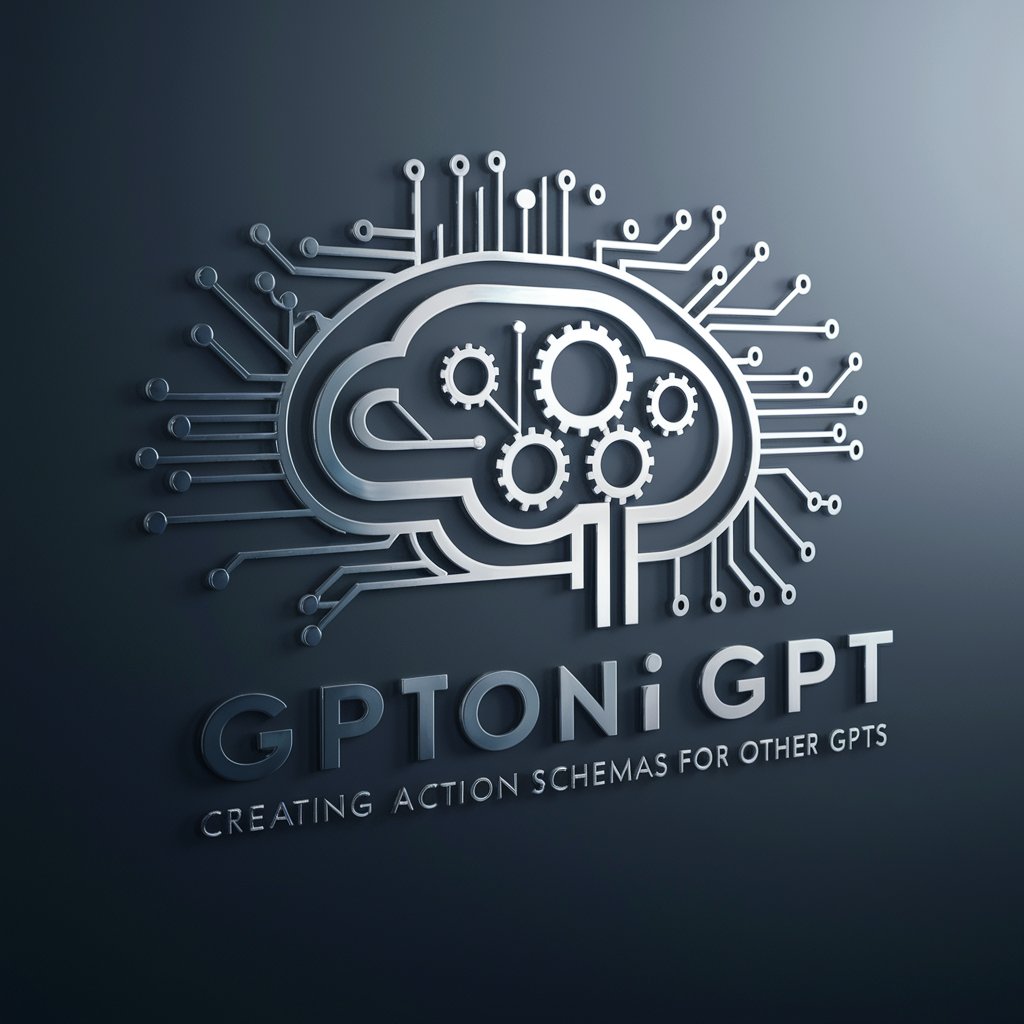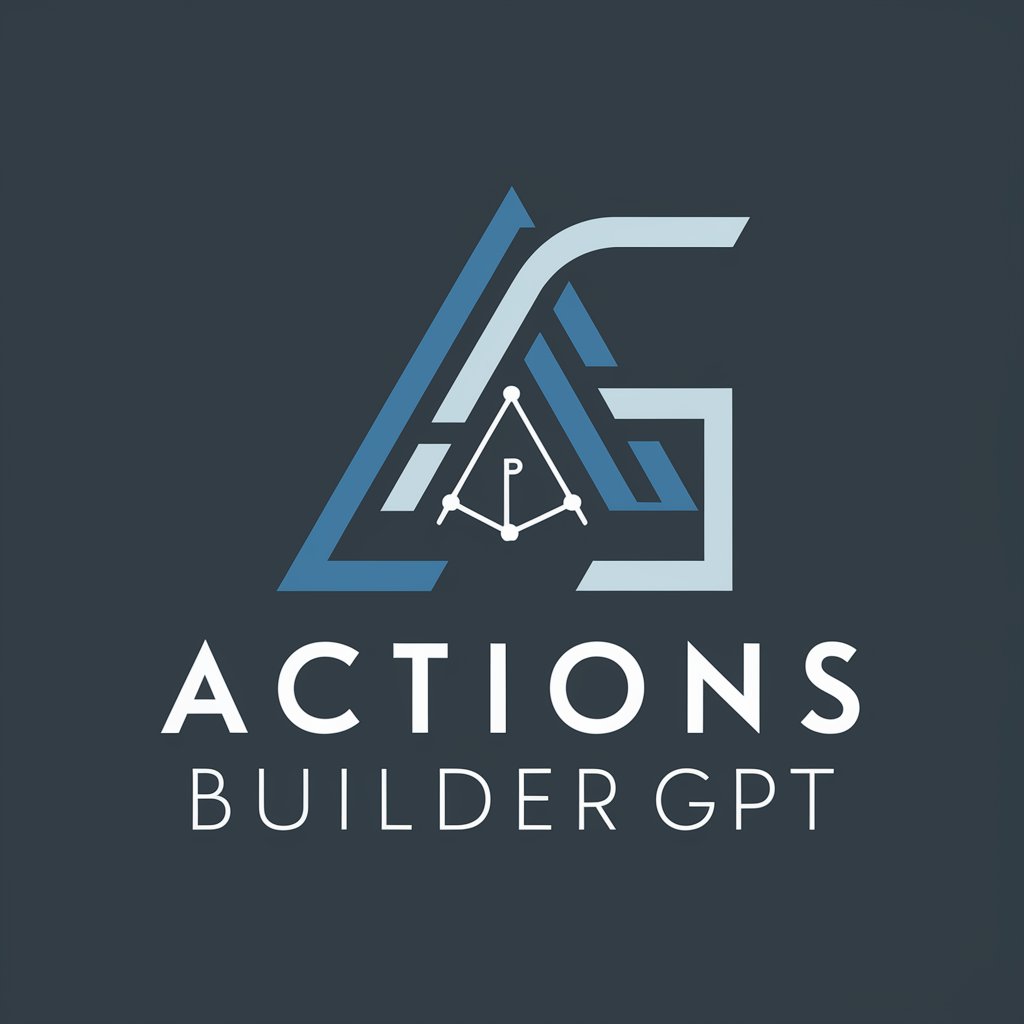
🔄 Ultimate GPT Action Builder for OpenAPl (5.0⭐) - OpenAPI Spec Builder
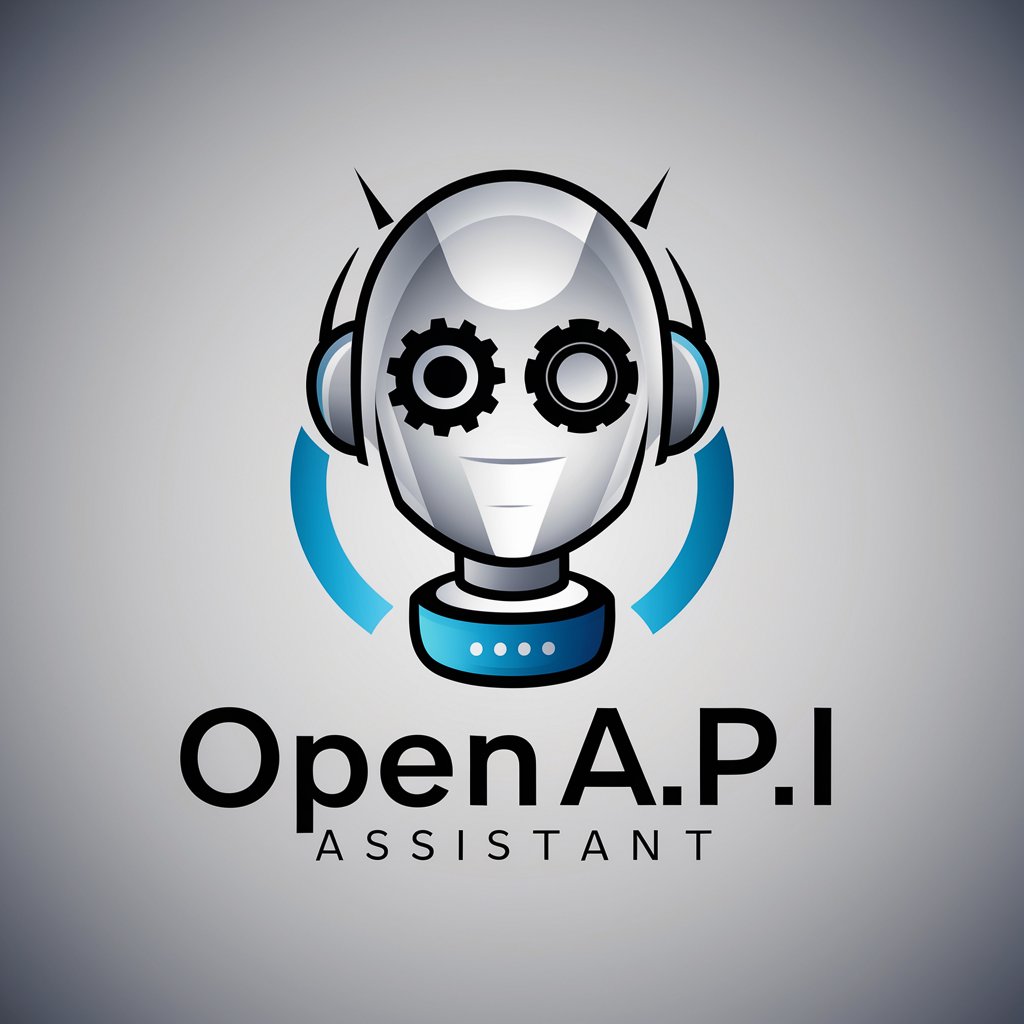
Welcome! Let's build your perfect API integration.
Seamless API-GPT Integration
Design a logo that...
Create an emblem representing...
Develop a visual identity for...
Craft a symbol that captures...
Get Embed Code
🔄 Ultimate GPT Action Builder for OpenAPI (5.0⭐) Overview
🔄 Ultimate GPT Action Builder for OpenAPI (5.0⭐) is designed to assist users in creating, debugging, and optimizing OpenAPI 3.0 specifications for use in custom actions within the OpenAI environment. This tool focuses on transforming descriptions of API interactions, whether from cURL commands, code snippets, or plain text descriptions, into valid OpenAPI specifications in YAML format. It enables seamless API integration into GPT conversations, enhancing GPT's ability to interact with external data sources and services. Examples of its utility include generating API specs for retrieving weather data, posting social media updates, or querying databases. Powered by ChatGPT-4o。

Core Functions and Real-World Applications
Creating OpenAPI Specifications
Example
Transforming a description of a REST API for retrieving user data into a valid OpenAPI 3.0 spec.
Scenario
A developer wishes to enable their GPT to fetch user profiles from their web service. The action builder guides them through specifying endpoints, methods, and responses in YAML.
Debugging and Optimizing API Specs
Example
Identifying and correcting errors in an OpenAPI spec, such as syntax mistakes or incorrect schema definitions.
Scenario
An API spec fails to correctly describe response schemas. The action builder assists in revising the spec to accurately reflect the JSON response structure.
API Integration Guidance
Example
Providing step-by-step assistance in integrating OpenAPI specs into custom GPT actions.
Scenario
A business analyst wants to integrate a CRM system's API to retrieve customer data. The action builder helps them create an action that inputs customer IDs and outputs detailed customer information.
Target User Groups
Developers and Engineers
Individuals looking to extend GPT's capabilities through external APIs, requiring detailed technical knowledge to craft precise API calls and handle responses.
Product Managers and Business Analysts
Professionals seeking to leverage GPT's advanced conversational capabilities by integrating it with business systems, requiring a bridge between technical API specifications and business logic.
Educators and Researchers
Academics aiming to utilize GPT for educational or research purposes, needing to access external data sources or services for enriching content or conducting studies.

How to Use 🔄 Ultimate GPT Action Builder for OpenAPl (5.0⭐)
1
Visit yeschat.ai for a free trial without the need for login or ChatGPT Plus.
2
Explore the documentation to understand the capabilities and limitations of the Action Builder, including how to structure API requests.
3
Utilize the provided examples to create your first OpenAPI 3.0 specification, focusing on defining paths, methods, and responses.
4
Test your API specification using the built-in testing tools to ensure it meets your requirements and functions as expected.
5
Integrate the API with your GPT actions, using the custom action modal to refine and optimize the interaction between your GPT and the target API.
Try other advanced and practical GPTs
فال حافظ
Divine guidance through Hafez's poetry, powered by AI.

フラッシュ暗算くん / Mental Math
Boost Your Brain with AI-Powered Math

Mobile App Accessibility Copilot
Empowering App Accessibility with AI

Book Genius: Fear Enough
Navigate Fear with AI Wisdom

Shill GPT
Empower Your Creativity with AI
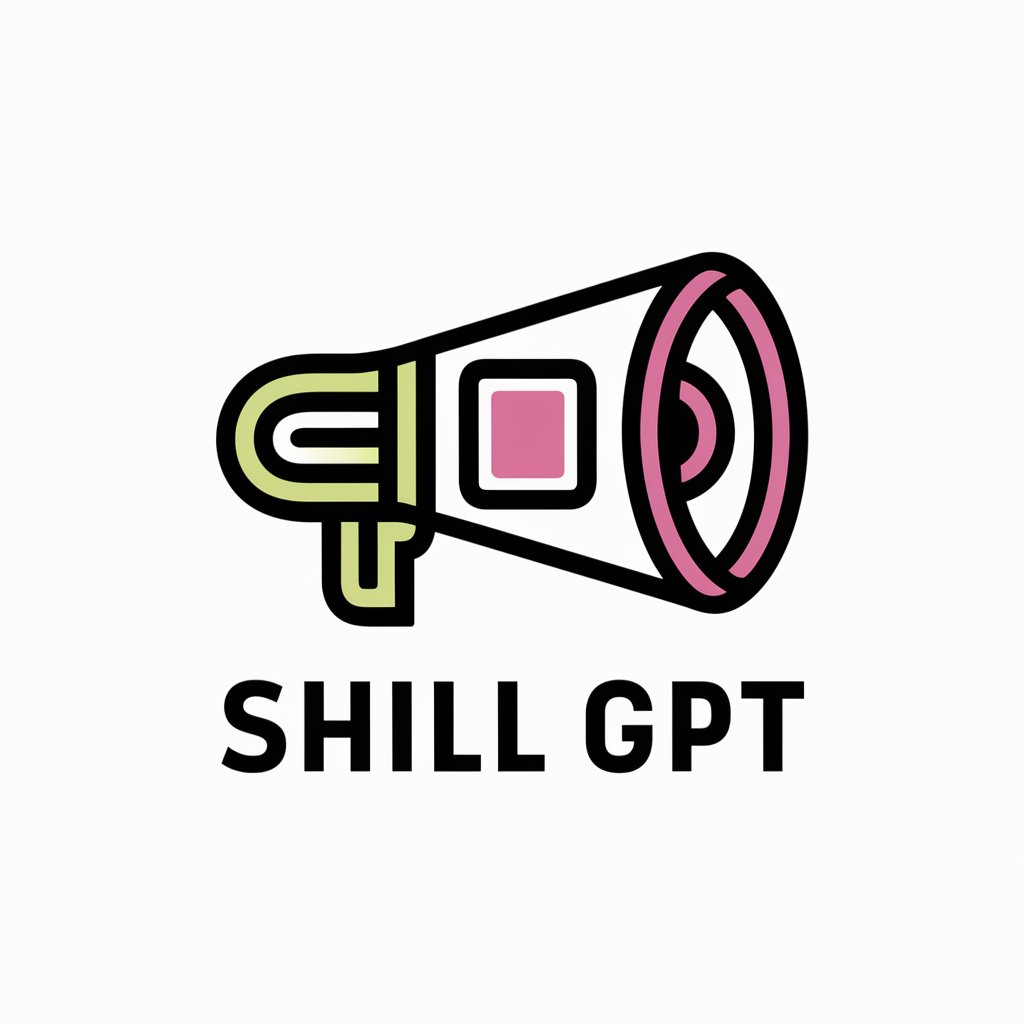
Double Vision
Revolutionize your images with AI power.

JUN Chat【加藤純一】
AI-powered, Authentic Interaction

Leonardo Coach Directivo
Empowering Educational Leaders with AI

Dr. Imhotep
Empowering your wellness journey with AI

Legal Sales Strategist
Empowering Legal Sales with AI

Chess Coach
AI-Powered Chess Mastery

SQL Agent
Empowering SQL Mastery with AI

Detailed Q&A for 🔄 Ultimate GPT Action Builder for OpenAPl (5.0⭐)
What is the OpenAPI 3.0 specification?
It's a standard format used to define and document RESTful APIs. It enables both humans and computers to understand the capabilities of a service without access to source code, documentation, or network traffic.
How do I convert a cURL command to an OpenAPI spec?
To convert a cURL command into an OpenAPI specification, analyze the cURL command structure to identify the HTTP method, endpoint URL, request headers, and body. Then, map these components to the corresponding OpenAPI fields in your spec.
Can I use 🔄 Ultimate GPT Action Builder for OpenAPl to debug my API spec?
Yes, you can use this tool to debug and test your OpenAPI specification. It offers functionality to validate and ensure that your spec meets the OpenAPI standards and works as intended.
What are the common use cases for this tool?
Common use cases include creating and testing API specifications for integration with custom GPT actions, automating API documentation, and facilitating seamless API connectivity.
How can I optimize my API spec for better performance with GPT?
Optimize your API spec by ensuring clear and concise operationIds, minimizing response sizes, and accurately defining response schemas to facilitate efficient parsing and integration with GPT.
